My Family Just Lost Their "having Me In Their Lives" Privileges!

My family just lost their "having me in their lives" privileges!
More Posts from Q587p and Others
Thematically speaking, the most important thing Terry Pratchett taught me was the concept of militant decency. The idea that you can look at the world and its flaws and its injustices and its cruelties and get deeply, intensely angry, and that you can turn that into energy for doing the right thing and making the world a better place. He taught me that the anger itself is not the part I should be fighting. Nobody in my life ever said that before.










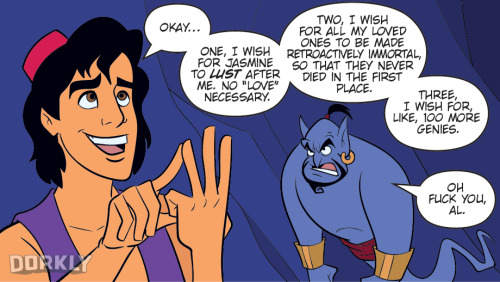
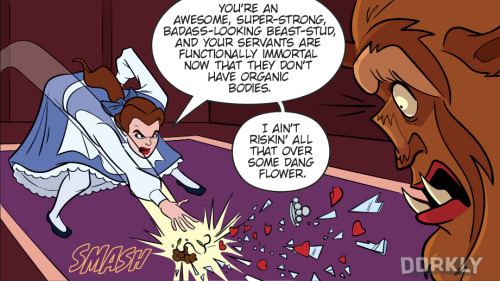
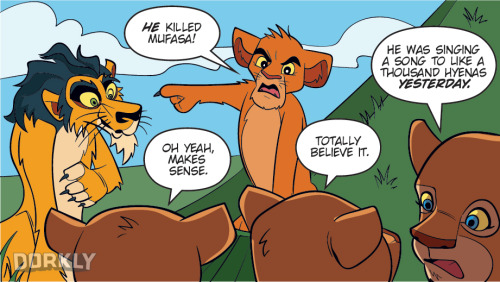
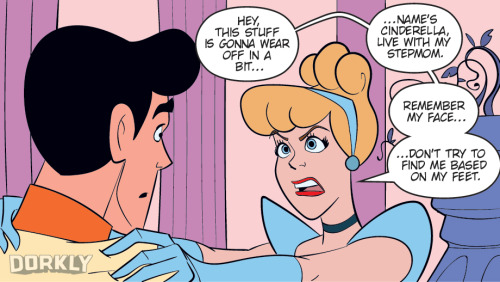
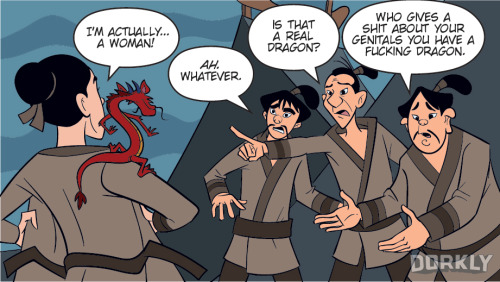
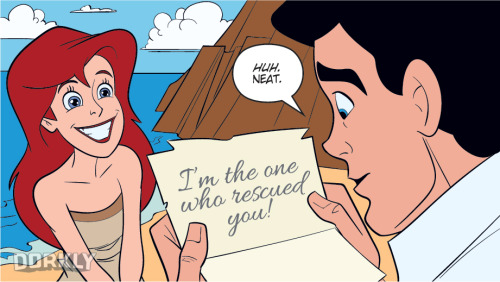
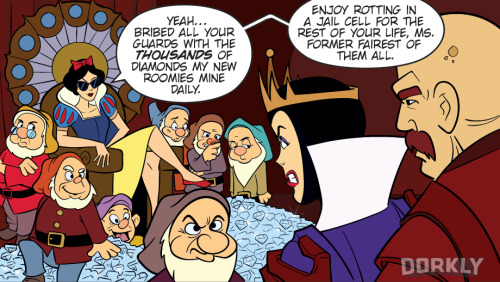

Din carrying Grogu properly
what if vampires are like mosquitoes and only the ladies drink blood
лучшее!






“Lilith and Eve" by SAYAE Heroika Arts, 2018
Help me translate my GOnalytics!
Guys, as some of you know, I’ve written an analytical text on Good Omens TV Show by Amazon Prime. It’s in Russian, as it’s my native tongue, and I would like to have it translated, so English-speaking part of Good Omens fandom could also read it. I truly think it’s worth it: it’s the biggest and the most important text project of mine so far, and I would really like to reach as many people as possible. I do speak English myself, but it is definitely not enough to make the text sound as smooth as it (hopefully) does in Russian. So, I’m looking for a pro translator, fluent Russian, native English. Being Good Omens fan might be a plus, but naturally it’s a regular paid job anyway, so, the skill is way more important.
It’s not often when I ask for repost, but now’s the time. Even if you don’t know me, but somebody you know might be interested in the job, or maybe some of their followers might want it - PLEASE REPOST! I’m a nice guy to work with, and I will provide any possible assistance with the translation.
You can also share this post on Twitter: https://twitter.com/tomash_beran/status/1229714449801543680
Thanks to all of you who decide to share!
https://docs.google.com/document/d/1b1ZyorUrm2_v6IEsMK3THZbRZQ5QpGY7Vt9ZV6_hEUI/
Ребята, я страстно мечтаю перевести свою аналитику по сериалу Good Omens на английский, чтобы иметь возможность расшарить ее в англо-фандоме. Это изначально был план, мне кажется, она того стоит, и мне хотелось бы донести ее везде и всем, кому может быть интересно. Сам я с переводом не справлюсь: английский все-таки не родной, мне не хватит легкости, а также английских идиом и слэнга, а терять эти штуки не хотелось бы. Поэтому - ищу профессионального переводчика со свободным русским и родным английским. Было бы здорово, если бы человек любил GO, но это не обязательно - в любом случае, это оплачиваемая работа, так что качество важнее фанатизма)
Я крайне редко прошу о репосте, но сейчас настал тот самый момент. Даже если вы не знаете меня и не знаете никого в своем окружении, кому могло бы быть это интересно, возможно, среди друзей ваших друзей найдется кто-то, кто захочет взяться. Поэтому - ПОЖАЛУЙСТА, РАСШАРЬТЕ! Кто знает меня, подтвердит: со мной приятно работать, я помогу с русским слэнгом и с чем угодно еще и смогу адекватно оценить перевод.
У кого есть твиттер, можно также расшарить этот пост: https://twitter.com/tomash_beran/status/1229714449801543680
Заранее спасибо всем, кто решит поделиться!

Animal Crossing Fish - Explained #62
Brought to you by a marine biologist who has a pen…and has a pineapple…
CLICK HERE FOR THE AC FISH EXPLAINED MASTERPOST
Tell me if I’m referencing memes that are too old and watch me not care. Anyway, let’s go over the Sea Pineapple, because I bet you don’t know really what it is, and tbh, I didn’t for a second either. But it turns out it is a type of Sea Squirt, and therefore, of all the invertebrates in the game, we, as vertebrates, are most closely related to this thing. I’ll explain in a minute:

We here on Northern Hemisphere islands are able to dive for this thing all day and night, so if you haven’t caught one yet, just give it some time. Then, when you give your first one to Blathers, it’s put into the big coastal tank underneath the coral reef tank and it just…sits there. Which is totally understandable, considering this animal - yes, it’s an animal - lives a sessile life, meaning it attaches to something and stays there. It also filter feeds, so you see its little siphons opening and closing.
The Sea Pineapple is a real animal, Halocynthia roretzi and it’s eaten primarily in Korea and less so in Japan, despite the fact that a lot people say it tastes like not-food. But, hey, humans will eat anything.

So, Sea Pineapples are a kind of Sea Squirt, aka a Tunicate, a soft, squishy that sits on the seafloor and filter feeds. But despite this thing not having a face or an interesting lifestyle, the fact remains we’re more closely related to it than we are to the cooler invertebrates, like insects, worms, or octopuses. They belong in the Phylum Chordata with us, the even-more-interesting vertebrates. Now, I’m gonna try REAL HARD not to go off on a nerd-tastic tangent, but this is one of my favorite topics - chordate phylogeny.
So, what’s a Chordate? It is not synonymous with “vertebrate” although lots of us in the phylum are vertebrates. All animals in this phylum have 5 very distinct features that no other group has, either during our whole lives or part of our lives (that includes larval or embryonic stages). They are:
A post-anal tail, meaning our bodies extend past our anus.
We have a notochord, aka what my professor called “the stiffening rod of the body”. In humans, this is our spine.
A dorsal neural tube that, in us vertebrates, is the spinal cord, the main communication highway of the nervous system.
An endostyle/thyroid gland.
Pharyngeal slits, which often become gills in adult stages of chordates.
Although the Sea Pineapple doesn’t look like it has any of these features, its larvae do, which puts them in the same phylum as us vertebrates. Wild, huh?And this list of features puts us together with some weird stuff, the weirdest has to be tunicates, as shown by this phylogenetic tree:

^From this site. This should look kind of familiar since a stylized one is on the floor of the fossil section of the museum. I’ll do a special fish-explained to talk about that and how to read one of these. But basically, every node, or intersection of the branches represents the last common ancestor of the groups at the end of the branches. Once you can read these, you start to find out some very interesting, and mind-blowing facts, like, we’re all just derived fish and that birds evolved from dinosaurs and whales are most closely related with hoofed mammals and we’re related to boring tunicates instead of cooler things, like horseshoe crabs.
And there you have it. Fascinating stuff, no?
Nice!



-
 kisnin liked this · 2 weeks ago
kisnin liked this · 2 weeks ago -
 shinygoku liked this · 2 weeks ago
shinygoku liked this · 2 weeks ago -
 manysoup reblogged this · 2 weeks ago
manysoup reblogged this · 2 weeks ago -
 manysoup liked this · 2 weeks ago
manysoup liked this · 2 weeks ago -
 project-isles liked this · 2 weeks ago
project-isles liked this · 2 weeks ago -
 lyingbagel liked this · 3 weeks ago
lyingbagel liked this · 3 weeks ago -
 eveningfountain liked this · 1 month ago
eveningfountain liked this · 1 month ago -
 mittledann liked this · 1 month ago
mittledann liked this · 1 month ago -
 f-l-r-n liked this · 1 month ago
f-l-r-n liked this · 1 month ago -
 cretinvocals liked this · 1 month ago
cretinvocals liked this · 1 month ago -
 trashiestmammal liked this · 1 month ago
trashiestmammal liked this · 1 month ago -
 keichonijimura liked this · 1 month ago
keichonijimura liked this · 1 month ago -
 hazelsluck reblogged this · 1 month ago
hazelsluck reblogged this · 1 month ago -
 orion-starbelt liked this · 1 month ago
orion-starbelt liked this · 1 month ago -
 burnt-lemon liked this · 1 month ago
burnt-lemon liked this · 1 month ago -
 dragooned-speaks liked this · 1 month ago
dragooned-speaks liked this · 1 month ago -
 brethrenmoon reblogged this · 1 month ago
brethrenmoon reblogged this · 1 month ago -
 gumball-gleam liked this · 1 month ago
gumball-gleam liked this · 1 month ago -
 many-of-mycelium liked this · 1 month ago
many-of-mycelium liked this · 1 month ago -
 autonoae liked this · 1 month ago
autonoae liked this · 1 month ago -
 mooshofish liked this · 1 month ago
mooshofish liked this · 1 month ago -
 gf-winds reblogged this · 1 month ago
gf-winds reblogged this · 1 month ago -
 gf-winds liked this · 1 month ago
gf-winds liked this · 1 month ago -
 dishsoaptragedies liked this · 1 month ago
dishsoaptragedies liked this · 1 month ago -
 papergyroscope reblogged this · 1 month ago
papergyroscope reblogged this · 1 month ago -
 papergyroscope liked this · 1 month ago
papergyroscope liked this · 1 month ago -
 holdonimblooming reblogged this · 1 month ago
holdonimblooming reblogged this · 1 month ago -
 sayijo liked this · 1 month ago
sayijo liked this · 1 month ago -
 aurorasgambit liked this · 1 month ago
aurorasgambit liked this · 1 month ago -
 huantedfisherman liked this · 1 month ago
huantedfisherman liked this · 1 month ago -
 ne0nlightzz liked this · 1 month ago
ne0nlightzz liked this · 1 month ago -
 carbonh1ck4 liked this · 1 month ago
carbonh1ck4 liked this · 1 month ago -
 miserable-flamango reblogged this · 1 month ago
miserable-flamango reblogged this · 1 month ago -
 miserable-flamango liked this · 1 month ago
miserable-flamango liked this · 1 month ago -
 composedt reblogged this · 1 month ago
composedt reblogged this · 1 month ago -
 composedt liked this · 1 month ago
composedt liked this · 1 month ago -
 the-void-has-questions reblogged this · 1 month ago
the-void-has-questions reblogged this · 1 month ago -
 rubberroomwithrats liked this · 1 month ago
rubberroomwithrats liked this · 1 month ago -
 sweetbabyrayn reblogged this · 1 month ago
sweetbabyrayn reblogged this · 1 month ago -
 sweetbabyrayn liked this · 1 month ago
sweetbabyrayn liked this · 1 month ago -
 the-roc-pile liked this · 1 month ago
the-roc-pile liked this · 1 month ago -
 poppetdrop liked this · 1 month ago
poppetdrop liked this · 1 month ago -
 rosesmusicandaloeveraplants reblogged this · 1 month ago
rosesmusicandaloeveraplants reblogged this · 1 month ago -
 rosesmusicandaloeveraplants liked this · 1 month ago
rosesmusicandaloeveraplants liked this · 1 month ago -
 urlocalkookware liked this · 1 month ago
urlocalkookware liked this · 1 month ago